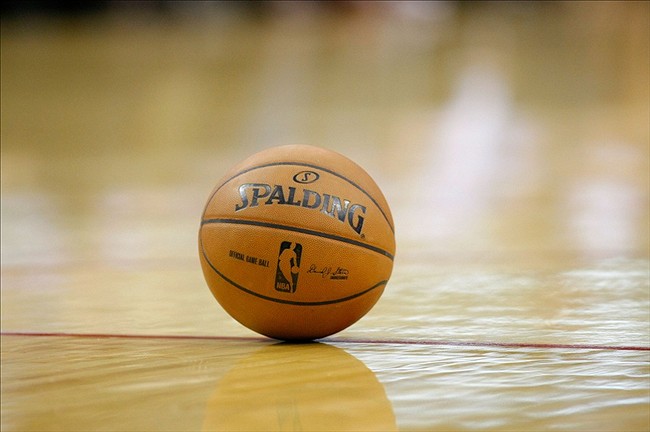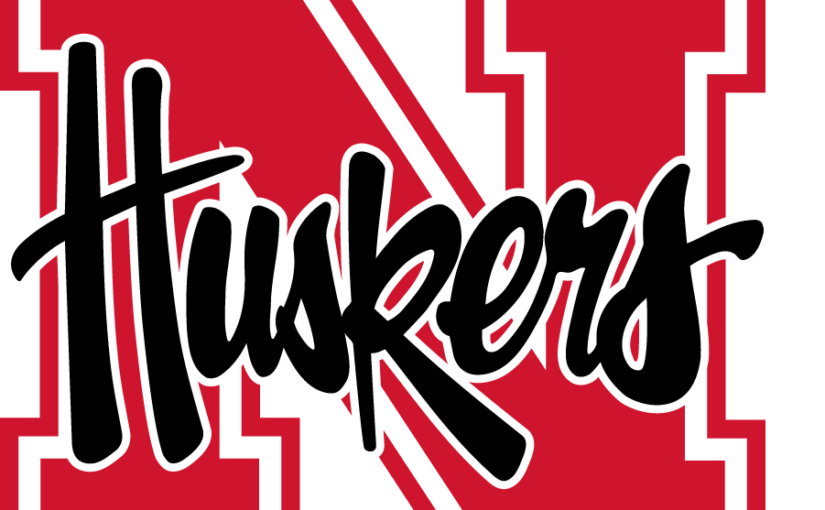The Bear Necessities
Kim Mulkey-Robertson is waking up Waco
COACH: You grew up in Tickfaw, La. What was your childhood like?
MULKEY-ROBERTSON: We grew up in the country and lived around my relatives: grandparents and aunts and uncles. My mother was self-employed. She owned a beauty shop that was attached to our house. My father owned an exterminating company. If I wasn’t in school, I was usually out in the yard – throwing a baseball, throwing a football, or shooting baskets.COACH: We understand that you were the quite the tomboy, playing Dixie Youth League baseball against boys. Is that how you established your competitive nature?
MULKEY-ROBERTSON: Baseball was actually the first organized sport I ever played. I began in the Dixie League as a 12-year-old and then the next two years I played Pony League. After that I started high school. Back then you didn’t have the Biddy Basketball League or softball teams for girls. Pick-up games we played during recess in school or in P.E. probably established my competitive nature. You name it: pick-up marbles, pick-up football. I was always out there playing with the guys. I just loved to play and compete.
COACH: From 1976-80, you were a four-year letter winner at Hammond (LA) High School, where you led your team to four successive state titles. In addition, it is said that you never missed a school day in 12 years. From whom did you develop your self-discipline?
MULKEY-ROBERTSON: I think you are born with it. It’s a personality trait. I had goals growing up and I didn’t want to miss a day of school. Actually, I went on a recruiting visit to Louisiana Tech during my senior year and I was scheduled to arrive in time for school. The plane was delayed because of fog. It just so happened to be the same day my school was giving out the Senior Awards and one of the awards I was getting was for never missing a day of school. It was sort of comical because everyone knew I was stuck in the airport but yet I was getting an award for perfect attendance.
COACH: You were the fiery leader at point guard for Louisiana Tech in the early 1980’s, leading the program to a 130-6 record and back-to-back national titles. What kind of player were you and what intangibles drove you to be the best?
MULKEY-ROBERTSON: I always thought I was very competitive and tough. What I maybe lacked in certain skill areas I made up for as the point guard and leader. I had to make sure that everybody was doing what they were supposed to be doing. I think I brought a lot of energy and enthusiasm to the game. I was told I was a very good passer and I could explode by a defender on the first dribble. I had great penetrating skills.
COACH: Growing up you weren’t always the biggest or fastest player, but your desire was fueled by an inner strength and strong work ethic. How did you develop those characteristics?
MULKEY-ROBERTSON: I think some of them you are born with and some you develop from the people you are surrounded by. I was always surrounded with good coaching and good players. So you learn from them. Now it’s my job as a coach to teach my players how to reach that next level that they may not think they can reach, or they think they have already reached.
COACH: At Tech you were mentored by Sonja Hogg and Leon Barmore, the legendary Lady Techsters co-coaches. What did you learn from them, not only as a player but also as a 15-year assistant coach?
MULKEY-ROBERTSON: Sonja Hogg was the head coach and Leon Barmore was the assistant coach. But he did the coaching and she did the recruiting. I learned a great deal from both of them. Not only did I learn about X’s and O’s, I learned from Leon that his competitive fire was contagious. Sonja was a very classy lady, the way she conducted herself. You also knew what she wanted and expected when you walked into the gym.
COACH: Aside from Hogg and Barmore, who are some of your other influential coaching mentors?
MULKEY-ROBERTSON: Pat Summit. You can’t help but learn from her. She has a personality that is very similar to mine. She is also very demanding and all business. I really enjoyed playing for her during the Olympics. I also played for several other great coaches during international competition. I played for Theresa Grentz at Illinois and Fran Garman, who’s retired now and coached at Temple (TX) College, Delta State, and Texas Christian. You just take a little bit from all of them and develop your own team and personality.
COACH: When and what led to your decision to get into coaching?
MULKEY-ROBERTSON: My degree is in Business Administration, and I was working on my Masters in Business Administration, which I never completed. Sonja Hogg had retired at Louisiana Tech and the president at Louisiana Tech approached me about coaching with Leon Barmore. That’s how it all started.
COACH: You have been a winner on ever level of basketball: high school, college, and Olympics. How does that pedigree and mindset help you build a winning program in addition to boosting the confidence of your players?
MULKEY-ROBERTSON: I think if you surround yourself with winners, it rubs off. I’ve been very fortunate to be surrounded by people who are winners, and I have brought that sense of urgency and that sense of demand and commitment to Baylor University. You have to realize at some point that you have to have your own standards. And we’ve done things here that have never been achieved.
COACH: After having so much success at Louisiana Tech, what was it about the Baylor program that intrigued you? What were your immediate and long-term goals upon arriving in Waco?
MULKEY-ROBERTSON: I don’t know if intrigued is the right word. It just came into my life. The Baylor athletic director called me during a time when I was ready to leave Louisiana Tech and become a head coach. That’s how I ended up here.
COACH: In 2000, you inherited a moribund program that completed the 1999 season with a 7-20 record. Yet you guided the Lady Bears to a 21-9 record in your initial season. Four years later you won a national title. Have you exceeded your expectations?
MULKEY-ROBERTSON: Without question! I don’t think that what we’ve done in five years is the norm. It’s not normal to win the national championship that quickly. I just think we were very fortunate that we were able to get some recruits in here that nobody knew about. My staff has been very loyal to me. We’ve been here together the entire time. And the commitment from Baylor and the administration has been amazing. There was a hunger here that Baylor wanted a winner. It’s just been a great situation.
COACH: You are the first woman to win a national championship as a player and head coach. What does that mean to you personally?
MULKEY-ROBERTSON: It’s something that has been brought to my attention. But I don’t really think about it. Maybe when you retire you can look back and reflect on it and it might mean more. But right now, while you’re coaching, you’re so focused on your team and the next basketball game that you don’t really have time to think about what that probably means.
COACH: What kind of offense and defense do the Lady Bears employ?
MULKEY-ROBERTSON: Offensively, it’s a lot of set plays and motion. Defensively we run a man-to-man philosophy. With maybe more zone defense in the playoffs. Although I like man-to-man defense I am not opposed to zone if it will help us win.
COACH: Can you describe your coaching methodology?
MULKEY-ROBERTSON: I don’t really know. But I can tell you my coaching personality is very fiery and intense. I coach with a lot of emotion, just like when I played.
COACH: What can you do to improve as a coach?
MULKEY-ROBERTSON: Absolutely. Every day. Any coach that doesn’t think they need to improve becomes stagnant. There are things I have learned through the course of coaching where I found myself saying, “Wow, I wish I hadn’t had done that.” Or, “I wish I had done that.” That’s part of everyday life. You live, you learn, and each team brings a new dimension and a new personality. And you have to adjust. The longer you coach the more you learn.
COACH: You have been known to mix it up and join your players during drills. How has that helped strengthen the player-coach relationship?
MULKEY-ROBERTSON: I just think it comes naturally for me sometimes to get out there and do some drills with them. I probably don’t do it as much as I did five years ago, but it’s comfortable for me to do that. I’m at an age where I am still capable of enjoying that time with my players.
COACH: You were the valedictorian at Hammond High. That said, how much do you stress the importance of academics to your players?
MULKEY-ROBERTSON: They understand that they’re here to get a degree first. I’m not going to allow players to abuse a free education. I feel as if you’re going to go to class. You may not get an A but you’re going to be in that class every day. Every time you miss class you can expect some disciplinary action. There has been many a night, in the wee hours of the morning, when we got home late from a game. I still expect them to be in class that day. There is probably nothing that will you put you in my doghouse quicker than if you don’t take care of your business academically.
COACH: As the mother of two children, you are well versed as to when to praise and when to discipline. That said, when is the right time to discipline a player, and what kind of approach do you take?
MULKEY-ROBERTSON: I have very high standards for this program. My form of discipline is probably higher than a lot of coaches. I believe it is a privilege and an honor to wear our uniform. And there are many people who would love to wear that uniform. I tell my players I don’t have many rules, but they will never embarrass the program or the university. And if they do, I will not tolerate it. There are certain things that are inexcusable. I’m not a coach who is going to compromise my high standards for anybody.
COACH: What is your favorite part of coaching: recruiting, practice, preparation, or game day and why?
MULKEY-ROBERTSON: Recruiting is my least favorite, because no one likes rejection. Everybody gets rejected in recruiting. My favorite part is probably teaching the game; observing during the course of a game and trying to do something strategy-wise that will help change the outcome in our favor.
COACH: What is the key to not only being a good teacher for your players, but also a good listener?
MULKEY-ROBERTSON: I think you learn. Sometimes as a coach you are a good listener because you have to make your players understand who’s running the show. Then, as you develop communication skills and mature as a coach and you become more comfortable with your team, then there is the right time to allow a player to interject or make a suggestion. But when you’re taking over a program that only won seven games, the players better just listen to the coach and allow her to build the program. Once the players learn the system, then you can allow them to have a little bit more of a say.
COACH: Your husband, Randy, is a former quarterback at Louisiana Tech. Do you ever talk strategy with him, or is that something you don’t bring home?
MULKEY-ROBERTSON: Maybe not strategy but things that happened during the course of the game. Or, why did you do this? You can’t help but bring the game home. Coaches say they don’t bring the game home. I don’t know how they do it because you do bring it home. You bring it home everyday from practice. You bring it home after wins and after losses. That’s how it is in our house.
COACH: Your players have described you as being very intense. While that intensity can help drive your team’s play, how do you know when to channel that intensity so as not to distance yourself from your players? Can it be a double-edged sword?
MULKEY-ROBERTSON: You just have to get a feel for it. Sometimes you want to distance yourself from your players and make them have a respect for fear. Sometimes, after your players have been with your program for a while, they become more comfortable. It’s just a feeling you get for your team. You don’t always make the right decisions when to see it. But it’s all something you have done during the course of trying to get the best out of them and get their attention. It’s a fine line between players playing hard. That’s what I am trying to get them to do, get them to understand the level they have to play at. Nothing I do out there from my intensity point of view should ever be taken personally. It is a business and a job. And you’re trying to beat your opponent.
COACH: As you look at the progress of the woman’s game, what pleases you most, and in what areas do you feel the women could make the most improvement?
MULKEY-ROBERTSON: What pleases me the most is the media attention. There are more games on television now than ever before. I think there are certain things that have helped the women’s game. The smaller basketball is an improvement. The 3-point line has helped the game. What do the women need to improve upon? I don’t know if there is any one thing, and I like the idea that it’s played below the rim.
COACH: What is the biggest challenge for women college basketball coaches today?
MULKEY-ROBERTSON: Some might say it’s having the resources to be competitive. I’ve never been in a situation where that’s been a problem.
COACH: Back in your hometown, there’s a street named Kim Mulkey Drive. How apropos is that based on what you have achieved?
MULKEY-ROBERTSON: It’s something that I am very proud of.












